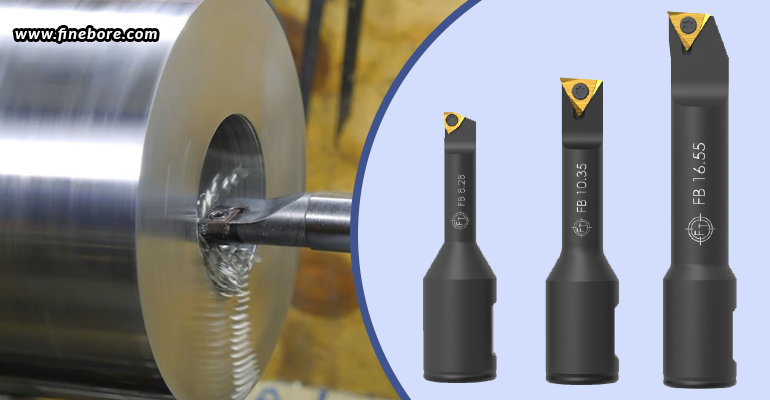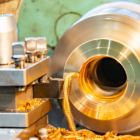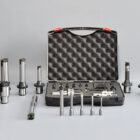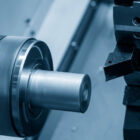Generally cylindrical in shape, housing a single-point cutting tool at one end, a boring bar is used to increase the internal diameter of an already drilled hole, to match the desired specification. But, there are a variety of different types of boring bars in Bangalore available to suit different applications, depending upon their geometry, cutting heads, materials involved, and other factors that affect the boring process. It is very important to be able to choose the right type of boring bar for your particular application, one that provides enough rigidity to handle the stress developed during the cutting process.
Using a boring bar
A boring bar is used to increase the diameter of a pre-drilled hole, but setting it up right is what determines the machining quality. An improper setup may cause vibrations during the machining process and result in a poor surface finish, with chatter marks along the bored hole. The clamping and overhanging lengths of the bar should thus be checked. Once everything is in place, the tool post is moved, so that the cutting tip of the boring bat is brought in contact with the surface to be machined, and the reading on the handwheels is set to zero. This eliminates any reading errors in calculating the depth of the cut, thus ensuring accurate dimensions of the final hole.
Types of boring bars
Boring bars can be classified based on their material, structure, and construction. The type of boring bar determines the strength of the bar to handle strong cutting forces with minimal vibrations. The most popular boring bars used include steel boring bars, carbide boring bars, and damping bars.
Steel boring bars
Steel bars are the most popular types of bars, which are preferred because of their good machining capabilities available at lower costs. However, these bars are less rigid, and are prone to vibrations, which in turn affect the quality of the cut. Hence, these bars are recommended for projects where low cost is valued over high accuracy. These bars are generally suitable for operations where a diameter to boring length of 1:4 is possible.
Carbide boring bars
Carbide bars are the most rigid bars, making it possible to use these bars with a smaller diameter, which provides greater clearance for chip evacuation. These bars are preferred in industrial applications where hard materials are to be machined, and where high accuracy is required, irrespective of the costs involved. These bars can make possible to have a maximum diameter to length ratio of 1:8, but a diameter of over 1 inch isn’t practical because of the high cost.
Damping boring bars
Damping bars are used when cutting speeds are compromised, or when surface finished show chatter in a long-reach boring operation. Having integrated damping systems, these bars can work as both a counter damper and friction damper, so that the chatter is essentially absorbed.
If you aren’t sure of which boring bar you’ll need or you should choose for your particular application, you can always get in touch with experts like FineTech Toolings. You can let the experts know about your industry type and requirements, and they’ll clearly define the best boring bars in Bangalore for you.





